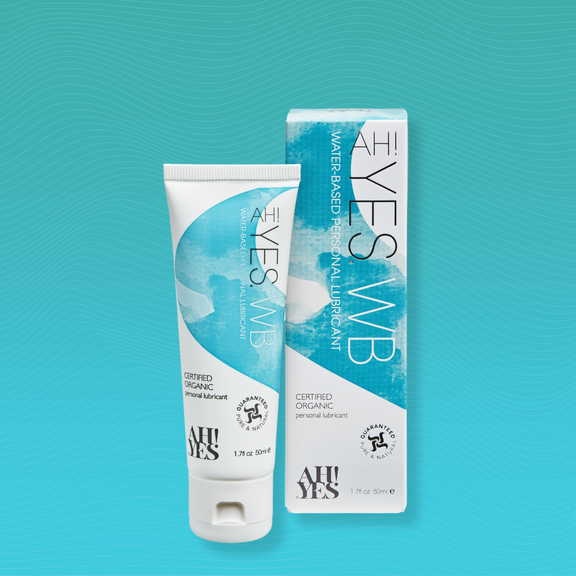Sex after cancer treatment: Intimacy tips
Sex after cancer treatment: Intimacy tips
A cancer diagnosis can affect every aspect of your life.
After cancer treatment, you might find sex and intimacy a little different to what it used to be. It’s only natural that things will feel different – you may have lost your sex drive, sex might cause you pain, or maybe you feel less confident in your body.
Cancer treatment can affect your sexual wellbeing in a number of ways:
Physical – Your treatment may cause side effects or symptoms
Emotional – Going through treatment can lead to stress, anxiety, depression, and worry
Practical – Treatment can also impact your roles and routines.

Sex and intimacy after cancer
It’s important to remember that there is no right or wrong way to feel about sex and intimacy after cancer. Everyone will feel differently, and that’s ok. The kind of treatment you’ve had, and whether or not you’re taking any hormonal medications, will all impact how you feel physically.
Some people will want to get back to their usual sex life very quickly and will find that being intimate helps them feel loved, cared for, and secure. Being intimate again after treatment may feel like a sign of life getting back to normal.
Others might not feel ready for quite some time.
Try to remember that many of the changes caused by cancer treatment are temporary and will improve over time. As you move further into your recovery, you may find that your feelings about sex and intimacy go back to how they were before.
Changes to sexual wellbeing and intimacy after breast cancer
Experiencing breast cancer can affect your sexual wellbeing in many ways.
Studies have shown that changes to sexual wellbeing can be one of the most problematic aspects of life after breast cancer. Patients reported having sex less with a lower level of satisfaction. This was caused by a range of factors, including tiredness and pain, psychological factors, body image, and changes resulting from medically induced menopause such as vaginal dryness and weight gain.
Some breast cancer treatments can cause sexual side effects – surgery can cause pain and discomfort, while chemotherapy can lead to nausea and lack of energy [1]. It can also cause vaginal ulcers, which often make sex painful. Chemotherapy and hormonal treatments can also lead to the early onset of the menopause, which can result in loss of sex drive, vaginal discomfort and dryness, as well as hot flushes[2].
If you are experiencing vaginal dryness or discomfort, a water-based lubricant may help to reduce pain and friction, increasing feelings of pleasure.
And it’s not just the physical changes that can cause problems. You may be feeling anxious or depressed after your treatment, or you may have lost confidence in your body image.
How long to wait until having sex after cancer treatment
That all depends on when you feel ready. If you feel like you’re ready to have sex, then it is probably safe to do so.
Some types of treatment will require you to wait to have sex or change how you are intimate for a period of time. If this is the case, your doctor or nurse will make you aware.
For example, if you’ve had surgery or radiotherapy to your pelvic area, you may need to allow time to heal properly before you have vaginal or anal sex. Likewise, if you’ve had high-dose chemotherapy or a stem cell transplant, you will be advised not to have close contact with anyone to protect you from infection[3].
If you’re still undergoing treatment, keep in mind that chemotherapy can be present in saliva and vaginal secretions for 48-72 hours after each treatment[4]. So if you are intimate during this time, make sure you use a condom for oral sex and intercourse to protect your partner from being exposed.
Tips for intimacy after cancer
- Don’t put too much pressure on yourself and take your recovery at your own pace. How you’re feeling now is totally normal.
- If you’re not feeling ready for sex, there are lots of other ways to be intimate. Kissing and hugging can help you remain close.
- Explore new things – the things you enjoy and the way you like to be touched may have changed. If certain positions are painful after your treatment, try different ones to find what works best for you and your partner.
- If you’re experiencing vaginal dryness or painful sex, try using a lubricant. You may also find a vaginal moisturiser
- Talk to your partner about how you’re feeling – they will understand and want to help.
- Seek help and support if you need it. The following charities list useful information and support: American Cancer Society; org; American Institute for Cancer Research; Cancer Support Community.
- Remember, you’re not alone.
References:
[1] https://pubmed.ncbi.nlm.nih.gov/22222680/
[2] https://www.ncbi.nlm.nih.gov/pmc/articles/PMC4708123/
[3] https://www.mayoclinic.org/diseases-conditions/cancer/in-depth/cancer-treatment/art-20047214
[4] https://www.macmillan.org.uk/cancer-information-and-support/impacts-of-cancer/sex-and-cancer
[5] https://www.oncolink.org/support/sexuality-fertility/sexuality/women-s-guide-to-sexuality-during-after-cancer-treatment




